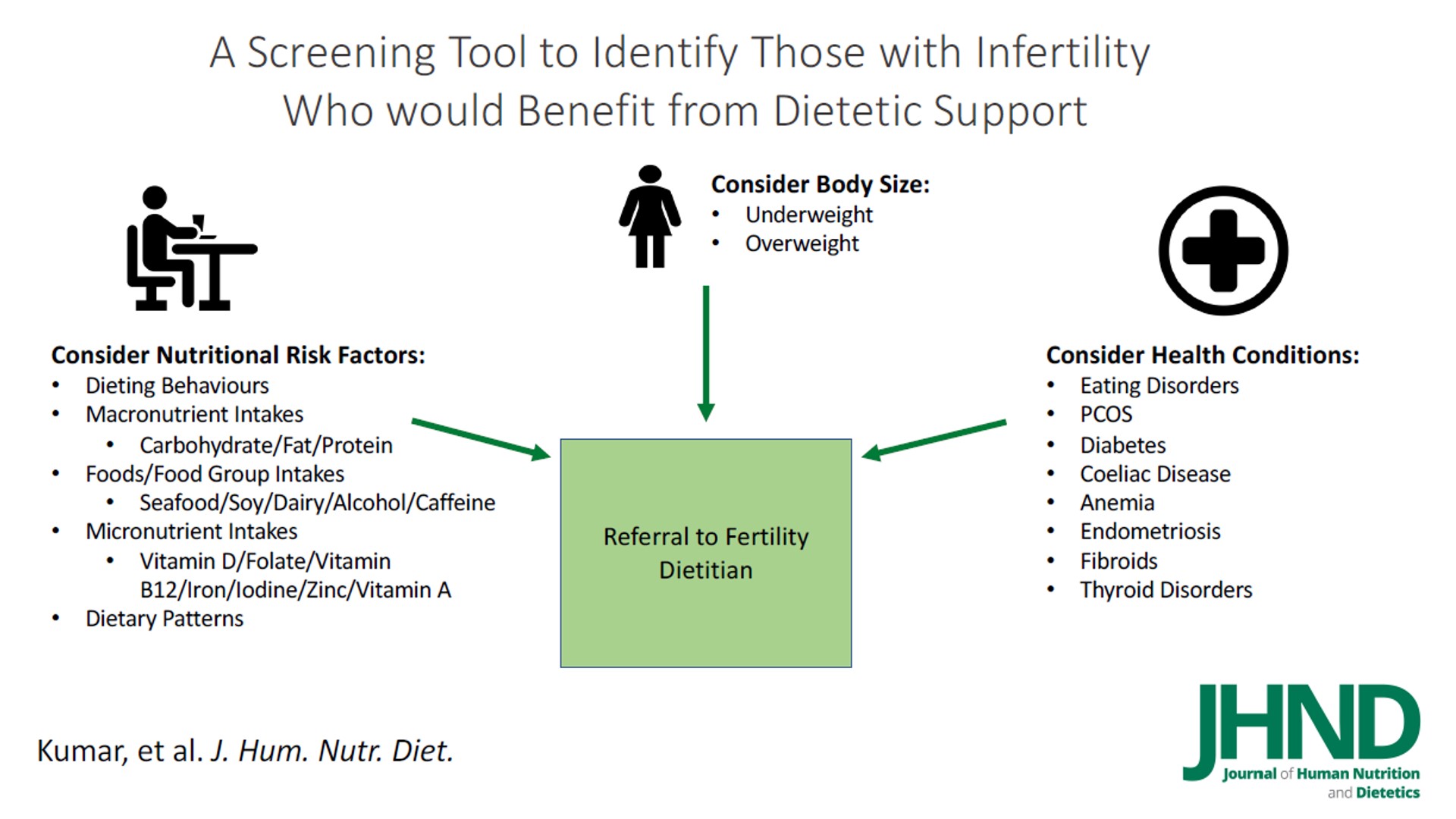A nutritional screening tool, developed by Associate Professor Claire Pettitt from the Health and Social Sciences cluster, could help women optimise their nutritional intake to boost their fertility.

Women struggling with fertility often try to do everything they can to improve their chances of having a baby – including changing their diets. It is common to hear of women restricting or eliminating certain foods to improve their health and increase their chances of conceiving.
“A common culprit is gluten or even carbohydrates in general. However, wholegrains and high-fibre carbohydrates are essential for a healthy diet,” said A/Prof Claire Pettitt who specialises in research on women’s health nutrition, and is a founding committee member of the Maternal and Fertility Nutrition Specialist Interest Group of the British Dietetic Association. She has extensive experience helping women with polycystic ovary syndrome (PCOS) and infertility to optimise their diets to manage their health and fertility.
A/Prof Pettitt cautions that avoiding gluten or carbohydrates may deplete diets of essential fertility nutrients such as folic acid, iodine, zinc, other B vitamins, as well as dietary fibre.
Supplements: A Slippery Slope?
Another common mistake women often make is to take only folic acid supplements, or to focus only on folate in their diets.
A/Prof Pettitt explained, “In fact, there are many other important micronutrients for fertility, such as vitamin D, iodine, choline, zinc, omega 3 and iron, that shouldn’t be neglected.”
Conversely, some women may take a cocktail of supplements as a form of reassurance. But consuming unnecessary and excessive amounts of supplements can do more harm than good. Instead, women should consider the quality of their existing diets before starting a regimen of supplements.
A/Prof Pettitt said, “There are currently no clear guidelines on how supplementation enhances fertility in women. In general, a well-balanced diet should provide all the necessary minerals and vitamins we need, except for vitamin D and folic acid, which should be supplemented.”
Is There a ‘Fertility Diet’?

A/Prof Claire Pettitt hopes to work with collaborators to pilot the nutrition screening tool. (Photo: A/Prof Claire Pettitt)
While diet undoubtedly has an impact on female fertility, there is still a lot of research to be done when it comes to fertility nutrition.
“We know that some foods and nutrients can have more of a negative effect on female fertility,” said A/Prof Pettitt. “For example, excess consumption of trans fatty acids, refined carbohydrates, and added sugars can be harmful. Meanwhile, foods rich in dietary fibre, omega-3 fatty acids, vegetable protein, as well as vitamins and minerals, have a positive influence on fertility.”
Some research suggests the benefits of sticking to a ‘fertility diet’. For instance, a Mediterranean-style diet comprising vegetables, fruits, whole grains, nuts, and seeds, works well for women trying to conceive. However, more research evidence is needed before we can define an optimal dietary pattern for fertility.
Not Always a Woman’s Problem
One pervasive misconception about infertility is that it is entirely a woman’s problem. The fact is, infertility occurs in an estimated 1 in 7 couples, and out of those cases, 30% is due to female infertility; 30% is due to male infertility; and 40% can be attributed to both male and female infertility.
Another common misconception couples have is that once you are ready to have a baby, it will be easy to conceive. In reality, conception is successful in the first 2 to 3 months in around 25% of couples.
A/Prof Pettitt pointed out that many potential health conditions, such as coeliac disease, thyroid endometriosis, PCOS, and diabetes, can impact a woman’s fertility.
She said, “The good news is that by managing these conditions carefully, couples can reduce their impact on fertility.”
A Nutritional Screening Tool
What if women had access to a nutritional screening tool to help them with fertility nutrition? In her recently published narrative review titled ‘Development of a nutrition screening tool to identify need for dietetic intervention in female infertility - Deepak Kumar - Journal of Human Nutrition and Dietetics - Wiley Online Library’, A/Prof Pettitt explores the impact of various aspects of nutrition and nutrition-related health conditions on fertility.

She explained that a nutritional tool could help identify women who would benefit from a dietetics intervention to optimise their nutritional status prior to conception. A dietitian could help manage the women’s nutrition concerns and recommend the necessary foods to optimise their nutritional status for fertility.
A/Prof Pettitt is hoping to work with collaborators who would be interested in piloting the nutrition screening tool.
She said, “Aside from helping women optimise their diets, the nutritional screening tool would also benefit clinicians by encouraging best practices and reduce the use of opportunistic and scaremongering nutrition services with less evidence-based practice.”















![[FA] SIT One SITizen Alumni Initiative_Web banner_1244px x 688px.jpg](/openhouse2025/directory/openhouse/openhouse/centre-professional-communication/directory/sites/default/files/2024-12/%5BFA%5D%20%20SIT%20One%20SITizen%20Alumni%20Initiative_Web%20banner_1244px%20x%20688px.jpg)


